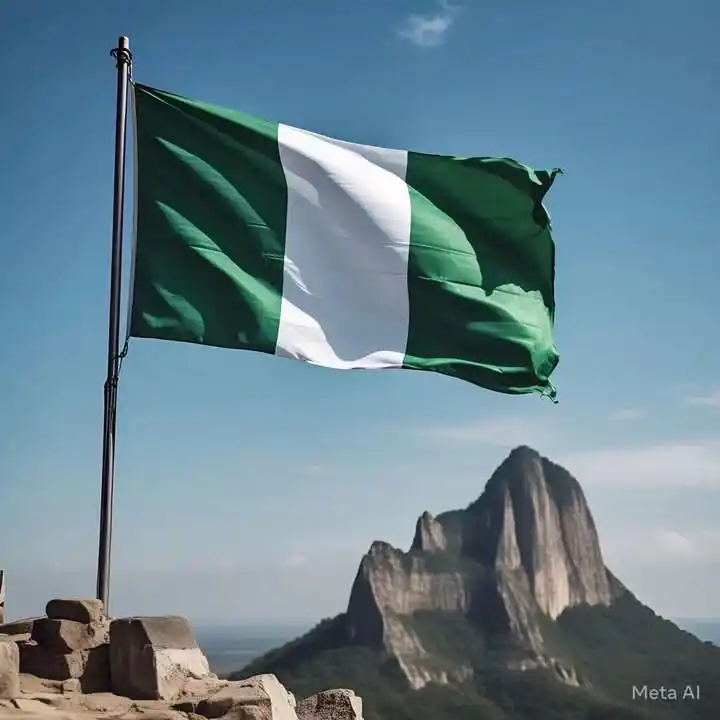
Obj Moses marexkal
February 11, 2025 at 02:17 AM
Nigeria, a country with a rich and diverse history, has witnessed numerous captivating moments that are often overshadowed in mainstream narratives. These untold or lesser-known historical events provide fascinating insights into the nation's cultural, political, and social past. Below are some of these hidden gems:
---
1. **The Aba Women's War of 1929**
- Often overlooked in global feminist movements, the Aba Women's War was a groundbreaking anti-colonial revolt led by women in southeastern Nigeria. Women from Igbo and Ibibio communities protested against colonial taxation policies and political oppression. This was one of the first major women-led uprisings in Africa, and it forced the British colonial administration to reconsider its exploitative practices.
---
2. **The Lagos Explosion of 1955**
- On January 26, 1955, a tragic explosion occurred in Lagos Harbor when a French cargo ship, *Grandcamp*, mysteriously caught fire and detonated while carrying volatile chemicals. The catastrophe killed hundreds and left thousands homeless. Though this event is not as widely discussed, it significantly impacted urban development policies in Lagos.
---
3. **Nigeria's Role in the Ethiopian-Italian War**
- During the 1930s, Nigerian soldiers under British colonial rule participated in efforts to resist Mussolini's forces during the Ethiopian-Italian War. Many Nigerians saw their involvement as part of a Pan-African movement to defend Ethiopia, the only African nation not colonized at the time. The war deeply resonated with Nigeria's emerging nationalist leaders.
---
4. **The Osun Grove Attempted Eradication**
- In the mid-20th century, the sacred Osun-Osogbo Grove, now a UNESCO World Heritage Site, faced threats of destruction due to modernization and colonial contempt for African traditional religions. Thanks to the intervention of Austrian artist and conservationist Susanne Wenger and local Yoruba leaders, the grove was preserved, saving its unique sculptures and spiritual significance.
---
5. **The Forgotten Kings of Pre-Colonial Nigeria**
- Long before colonial rule, Nigeria hosted powerful kingdoms, including the Nupe, Jukun, and Kanem-Bornu empires. For example:
- **The Nupe Kingdom**: The Nupe people in central Nigeria developed advanced bronze art and trading systems in the 15th century that rivaled Europe's Middle Ages.
- **The Kanem-Bornu Empire**: This empire in the Lake Chad region thrived for over a millennium and pioneered administrative systems and Islamic scholarship that predate colonial influence in West Africa.
---
6. **The Mystery of the Nok Civilization**
- The Nok Civilization, which existed as far back as 1000 BCE in present-day Nigeria, remains one of the most mysterious ancient societies in Africa. Renowned for their terracotta sculptures, little is known about their governance or decline due to poor archaeological documentation and illegal artifact smuggling.
---
7. **The Nigerian Pilot Who Saved America in WWII**
- During World War II, Flight Lieutenant David Ejoor was one of the Nigerian soldiers who served under the British Royal Air Force. His participation helped turn the tide in critical battles. Ejoor's bravery foreshadowed Nigeria's contributions in international peacekeeping throughout the 20th century.
---
8. **The Role of Nigeria in Nelson Mandela’s Fight**
- Nigeria played an active role in supporting Nelson Mandela and the anti-apartheid struggle in South Africa. In 1976, the Nigerian government introduced the "Mandela Tax" on civil servants, the proceeds of which were sent to the African National Congress (ANC). Nigeria also housed exiled ANC leaders and supported Mandela's legal defense team.
---
9. **The 1975 Coup that Never Was**
- A little-known aspect of Nigeria’s tumultuous political history is the 1975 "phantom coup," which was purportedly planned against military head of state General Yakubu Gowon. Historical accounts suggest that some factions blamed the coup rumors on infighting within the military elite, with no concrete evidence ever surfacing.
---
10. **Agnes Okoh: The Nigerian Evangelist Turned Billionaire**
- Often referred to as the “Mother of Aladura Churches,” Agnes Okoh founded the Christ Apostolic Church after reinterpreting Christian faith through a Yoruba traditional lens. Her entrepreneurial skills saw her build schools, hospitals, and industries that enriched her community, though her pioneering role in religion and commerce has been under-celebrated.
---
11. **The Maitatsine Uprisings (1980s)**
- Decades before global attention turned to Boko Haram, Nigeria faced the Maitatsine uprisings in places like Kano and Yola. This radical Islamic group, led by Muhammadu Marwa Maitatsine, emerged in opposition to Western-style modernization. The riots caused significant unrest and foreshadowed future religious extremism in Nigeria.
---
12. **Nigeria’s Contribution to Jazz and Highlife Music**
- Nigerian musicians like Fela Sowande were instrumental in inspiring jazz and classical movements globally. In the 1950s and 1960s, Nigeria’s highlife music blended African rhythms with Western instrumentation, creating a cross-cultural genre that influenced Afrobeat and laid the groundwork for artists like Fela Kuti.
---
13. **Buried Treasure of Biafra**
- During the Nigerian Civil War (1967–1970), it is rumored that Biafran leaders buried vast amounts of treasure—gold, artifacts, and other valuables—while retreating. These treasures remain unaccounted for, with searches occasionally sparking controversies.
-- 14. **Queen Amina’s Untold Legacy**
- While Queen Amina of Zazzau (Zaria) is often noted as a warrior queen, few know that she pioneered governance strategies that included women’s leadership in Hausa city-states. Beyond battlefield conquests, her focus on diplomacy and fostering trade partnerships reshaped northern Nigeria’s economic landscape.
---
15. **The Nigerian-Brazilian Returnees**
- In the 19th century, freed Afro-Brazilian slaves returned to Nigeria and settled mainly in Lagos and Badagry. They contributed to architecture, education, cuisine, and even local governance. Their distinct identity as the "Aguda" community remains an integral, but underexplored, part of Nigerian history.
---
These untold stories serve as reminders of Nigeria’s depth and complexity—a nation not just defined by its recent struggles but by the richness of its heritage and resilience.
